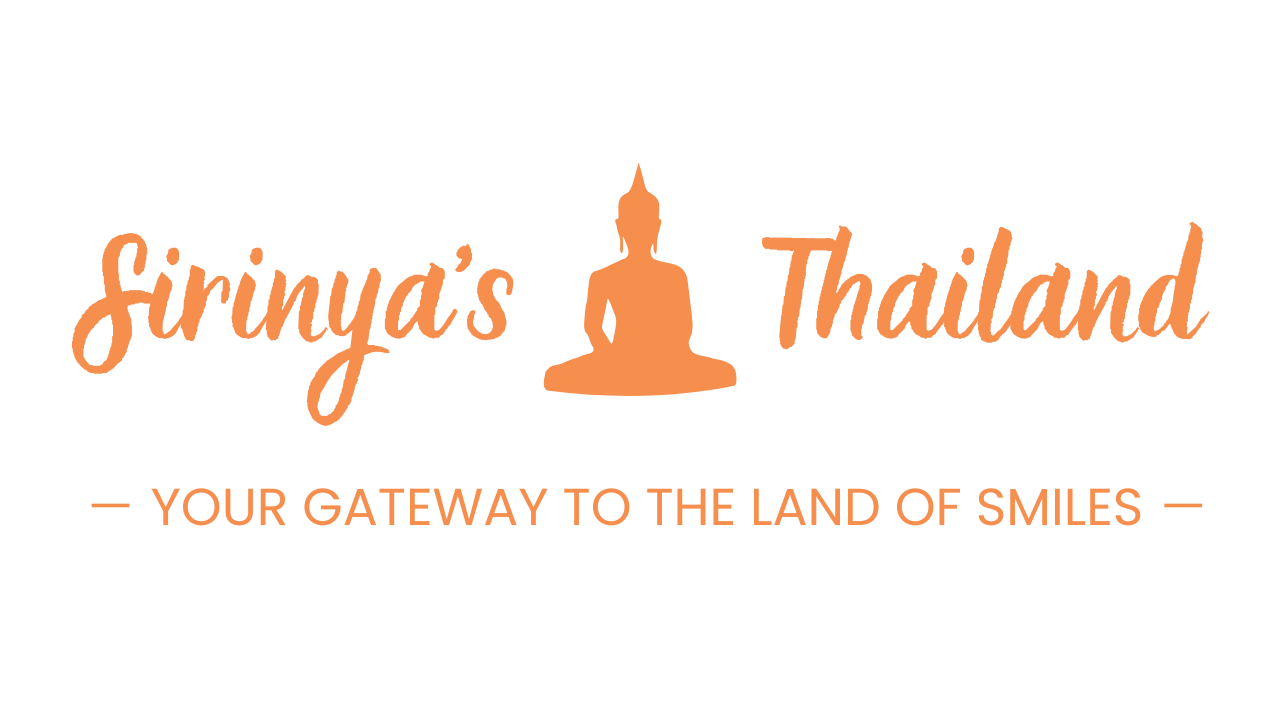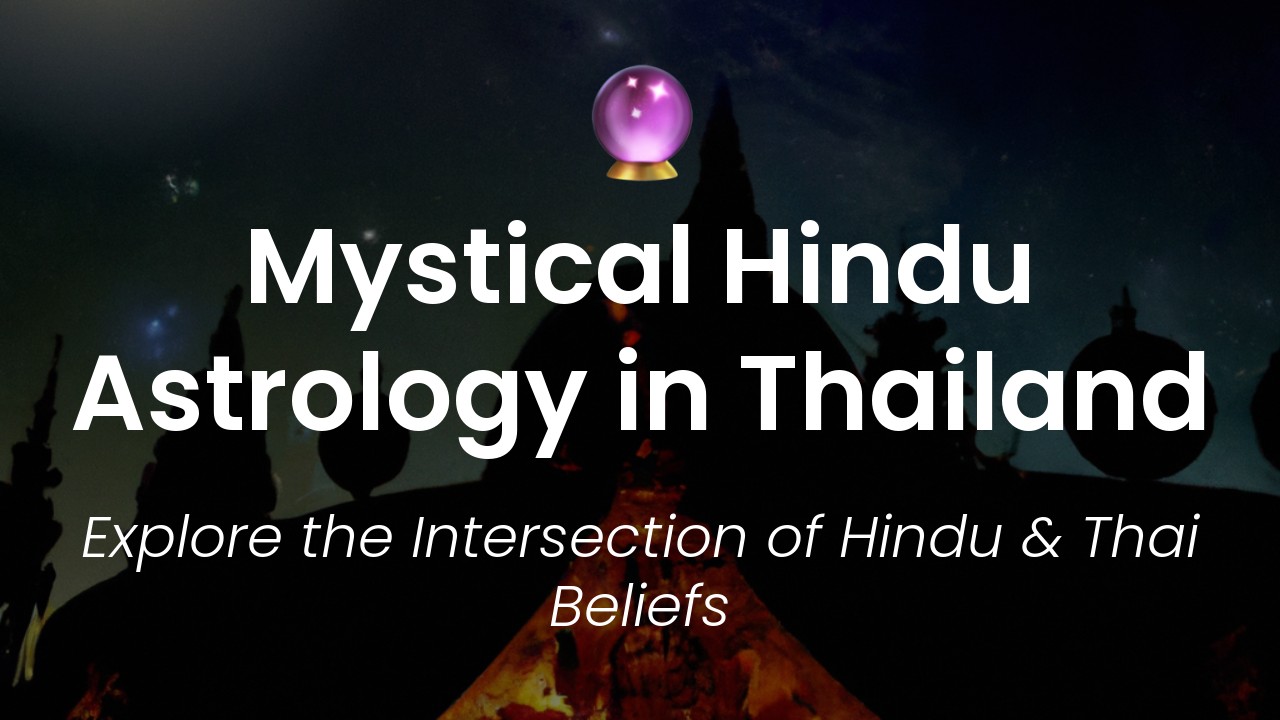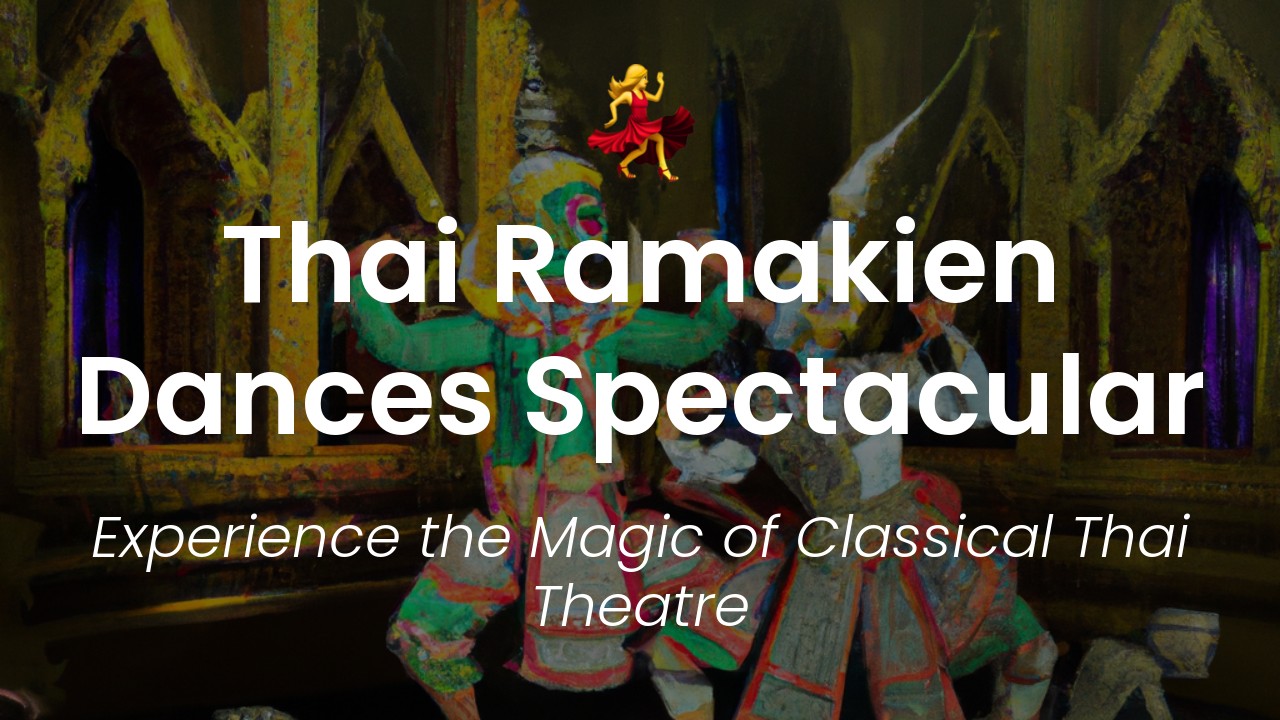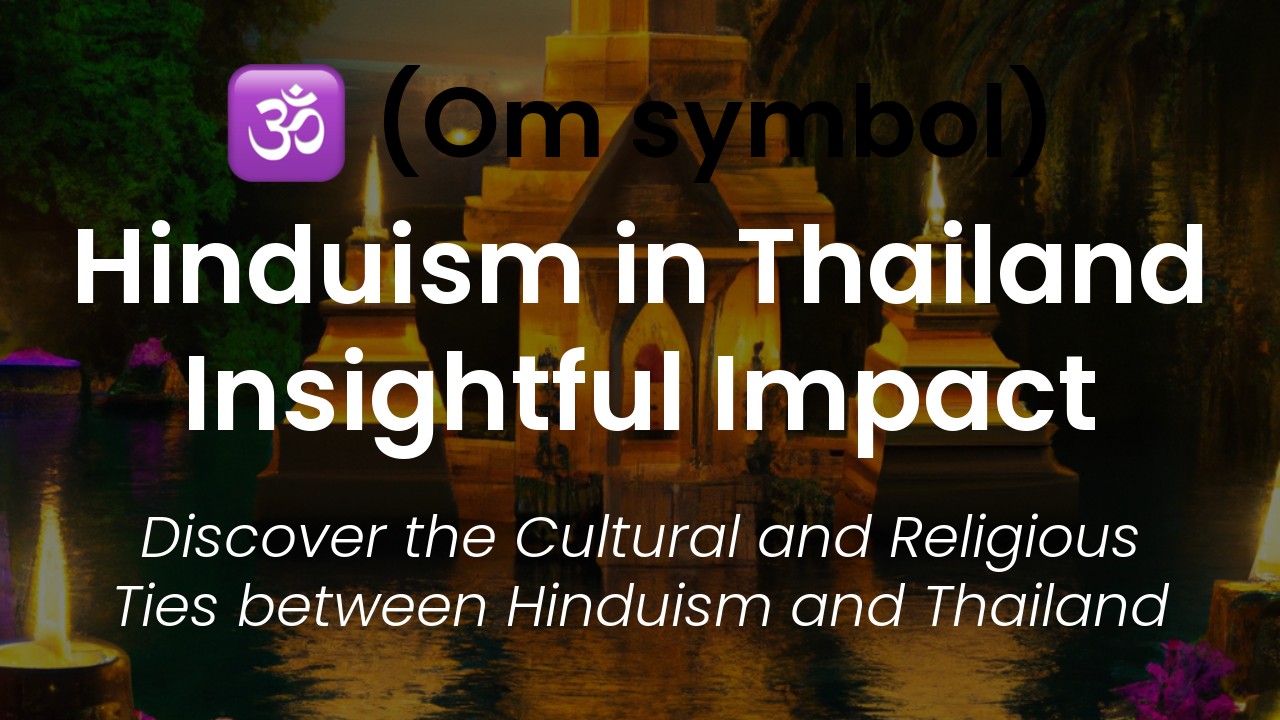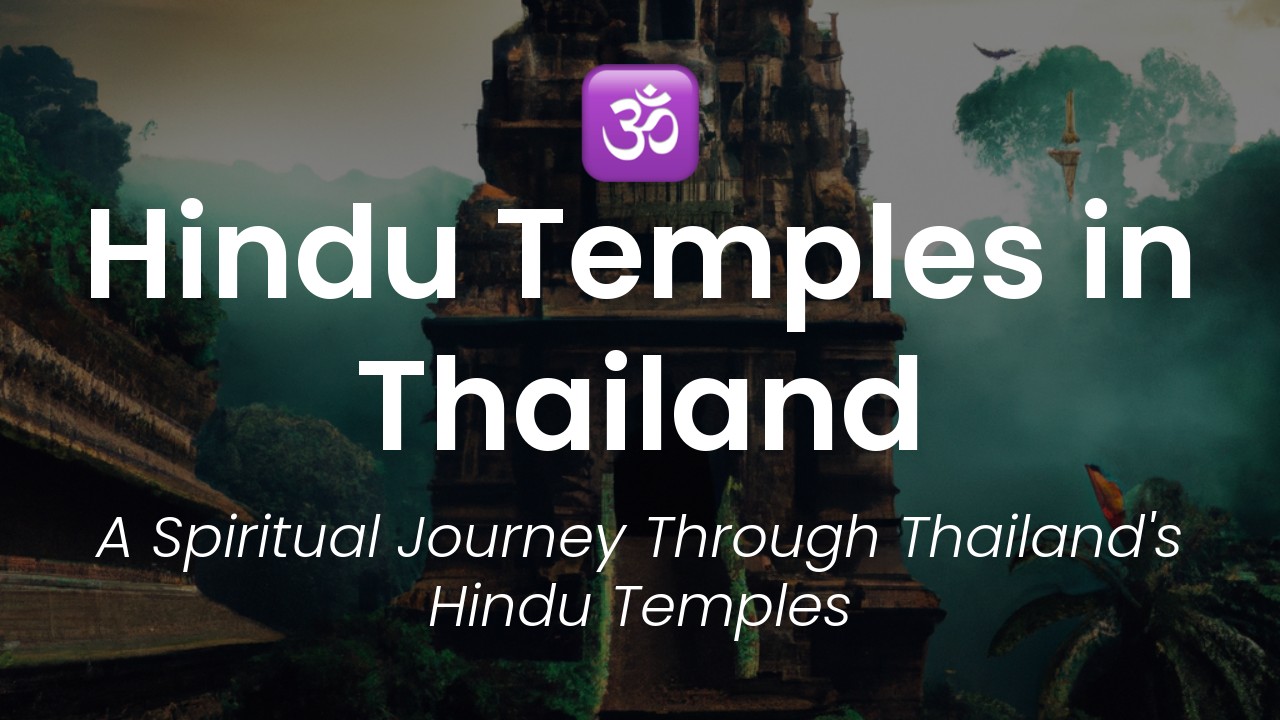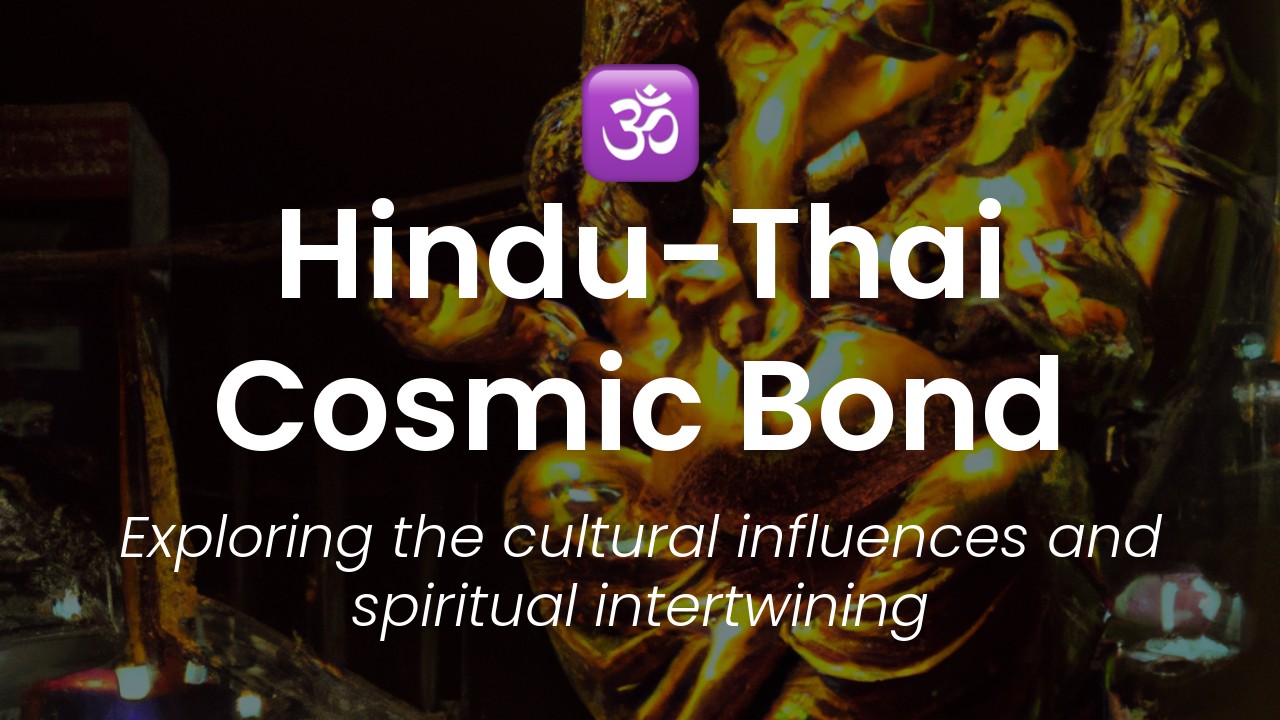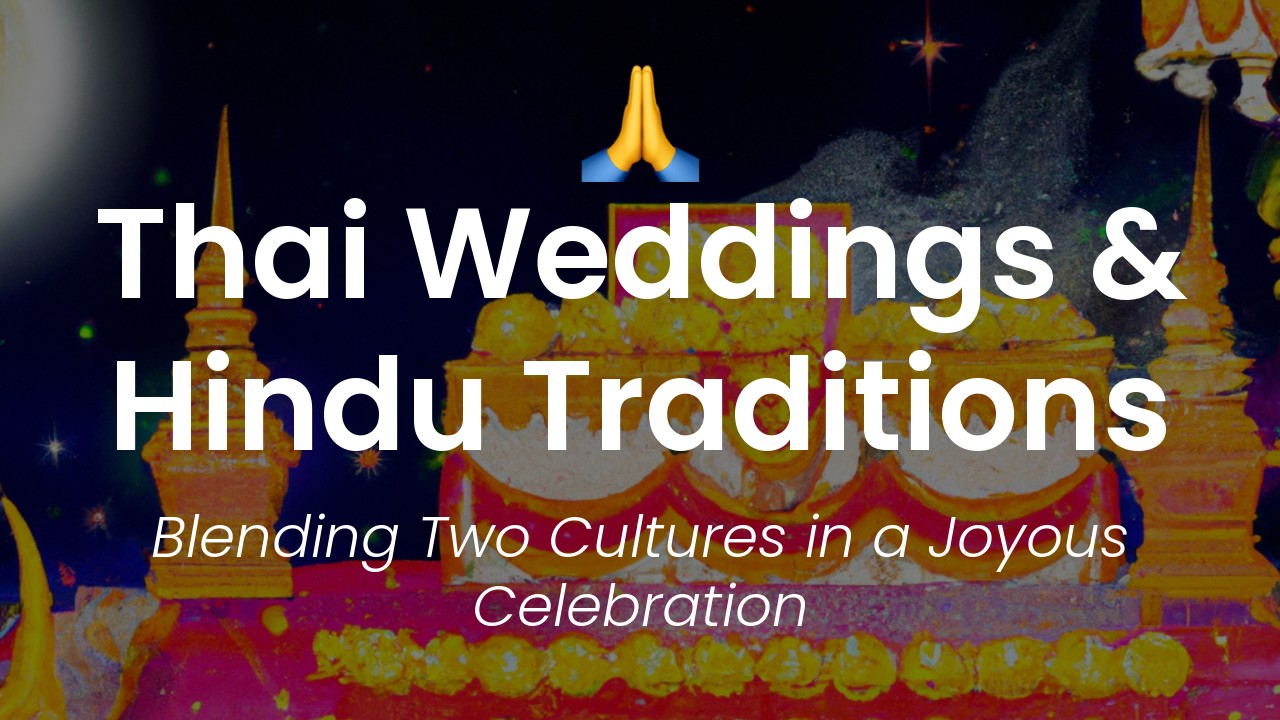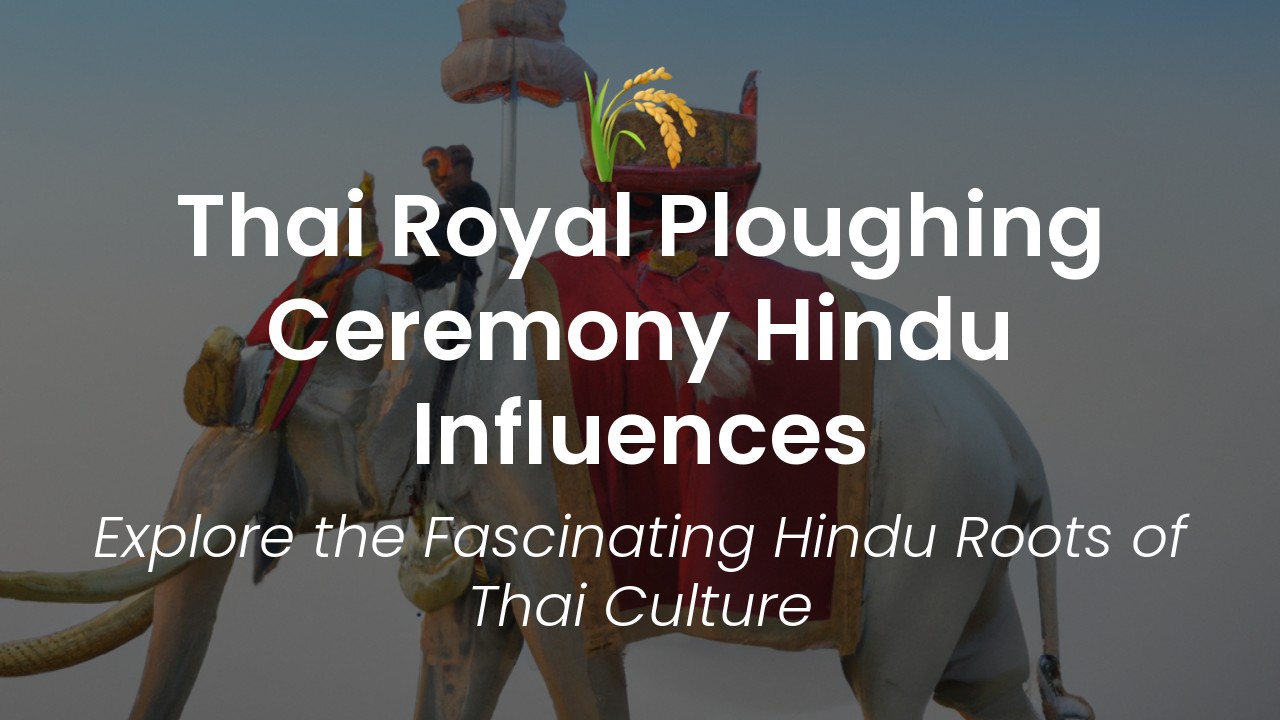Namaste, readers! I am Sirinya, and welcome to my blog. Today, let's talk about the fascinating topic of how Hindu Astrology has impacted Thai culture significantly. Hinduism has played a vital role in shaping Thai history and culture for centuries, and is still prevalent in various aspects of day-to-day life in Thailand.
Here in Thailand, Hindu astrology, often called Jyotisha, is an essential part of daily life. It has influenced many traditional Thai practices, beliefs, customs, and artforms. From the intricate astrological symbols carved on temples' walls, amulets tied around the necks of Thai people, to the auspicious dates and times recommended for significant events such as weddings or business ventures, Hindu astrology is omnipresent.
Thai people believe that the celestial bodies, such as the moon, planets, and star constellations, significantly impact their life and well-being. These celestial bodies are believed to influence not only behavior but also defining characteristics and temperament of humans. Therefore, to ward off any dangers or achieve specific desires, Thai people turn to Hindu astrology. It is an essential tool in predicting the future, ensuring a prosperous and fruitful life, and offering insight into personal and professional goals. In this blog post, we will discover the mystical influences of Hindu astrology on Thai culture.
Ancient Hindu Texts as Foundation
The practice of astrology originated in ancient India and has greatly influenced cultures around the world. Thailand is no exception. The ancient texts called the Vedas, which are the foundation of Hinduism, were brought to Thailand by Indian traders and missionaries. Along with these texts came the concepts of Hindu astrology, including the zodiac signs and celestial bodies that influence human behavior.
The impact of Hindu astrology on Thai culture can be seen in various areas. One example is Thai festivals, which often incorporate astrological beliefs.
Hindu Astrology in Thai Festivals
Thai festivals celebrate important events, such as the New Year, historical events, and religious occasions. Many festivals have roots in Hinduism and incorporate astrology as a fundamental component. The most famous Thai festival is Songkran, which celebrates the Thai New Year in April. It is believed that each zodiac sign has an associated color, so during Songkran, Thais wear clothes that correspond to their zodiac sign's color.
Another example is the Loy Krathong festival, which falls on the full moon of the twelfth lunar month (usually November). During the festival, people gather at rivers and water bodies to release baskets made of banana leaves and flowers into the water. This act symbolizes letting go of negative energy and receiving blessings in return. Hindu astrology played a role in determining the date of the festival, as it is based on the position of the full moon.
Thai Royal Family and Hindu Astrology
The Thai royal family has historically been closely linked with both Hinduism and astrology. King Rama V (Chulalongkorn) of the Chakri dynasty was a devotee of Hinduism and had a personal astrologer. In 1903, he founded the Royal Institute of Astrology to preserve and study Thai astrology, which incorporates Hindu and Buddhist beliefs. The institute later became the Department of Astrology in the Ministry of Culture.
The Thai royal family's connection to astrology is also evident in their use of auspicious dates for significant events. For example, King Bhumibol Adulyadej (Rama IX) was born on a Monday, which is considered the most auspicious day of the week in Thai astrology. His birthday is celebrated as a national holiday every year.
Consulting Hindu Astrologers in Thailand
Astrologers play an important role in Thai culture, particularly in matters related to personal life, such as marriage and career. It is not uncommon for Thais to consult astrologers before making important decisions. While there are many local Thai astrologers, there are also Hindu astrologers in Thailand who specialize in Vedic astrology.
Many Thais believe that Vedic astrology is more accurate than other forms of astrology and use it to gain insights into their future. Vedic astrology is based on the position of the planets at the time of a person's birth and is believed to reveal aspects of their personality and life path. Hindus who immigrated to Thailand brought this form of astrology with them, and it has become a popular part of Thai culture.
Hindu Astrology's Impact on Thai Architecture
Hindu astrology has also influenced Thai architecture. The concept of vastu shastra, a form of Hindu architecture, is believed to enhance the energy flow and promote prosperity. Thai architects have borrowed this concept and incorporated it into traditional Thai architecture.
For example, the design of Thai temples, or wats, is based on vastu shastra principles. Thai wats have multiple buildings arranged in specific patterns, with each building serving a specific purpose. The main prayer hall, or bot, is typically located in the center of the complex and faces east, following the principles of vastu shastra.
Modern Adaptations of Hindu Astrology
In modern Thailand, Hindu astrology continues to influence culture in new ways. For example, some Thai businesses incorporate astrological elements into their logos or advertising to attract customers.
Astrology apps are also becoming increasingly popular in Thailand. Apps like Astrology Zone Thailand offer daily horoscopes, personalized readings, and other services based on Vedic astrology. These apps are popular among young Thais, who seek guidance and insight into their futures.
Future of Hindu Astrology in Thai Culture
Hindu astrology continues to play an important role in Thai culture and shows no signs of disappearing. As the younger generation becomes more interested in astrology and spirituality, it is likely that the influence of Hindu astrology will continue to grow.
However, experts caution that while astrology can offer valuable insights, it should not be relied upon too heavily. It is important to use astrology as a tool for self-discovery, rather than a way to predict the future.
In conclusion, Hindu astrology has left a lasting impact on Thai culture, from festivals and architecture to personal beliefs and daily life. By understanding the roots and principles of Hindu astrology, we can gain insight into a unique aspect of Thai culture and spirituality.
